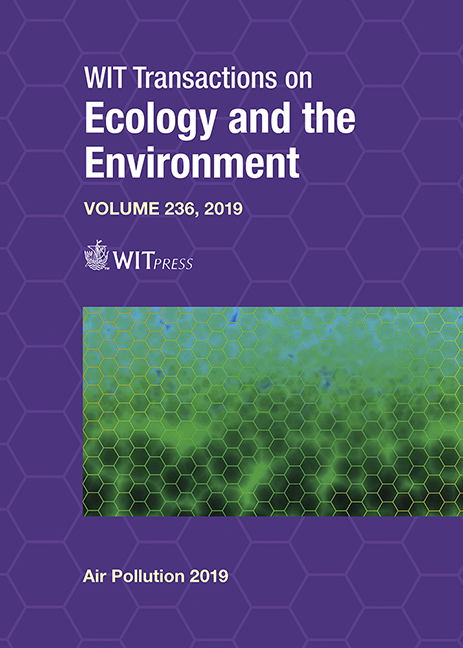URBAN MOBILITY STRATEGIES TO IMPROVE LOCAL AIR QUALITY: CASE STUDY OF LISBON, PORTUGAL
Price
Free (open access)
Transaction
Volume
236
Pages
10
Page Range
257 - 266
Published
2019
Size
415 kb
Paper DOI
10.2495/AIR190251
Copyright
WIT Press
Author(s)
DIOGO LOPES, JOANA FERREIRA, SANDRA RAFAEL, PATRICIA BAPTISTA, MARTA FARIA, NUNO CANHA, SUSAN MARTA ALMEIDA, MARINA ALMEIDA-SILVA
Abstract
Particulate matter concentrations are still exceeding the European air quality limit values, mainly in the urban areas where a large part of the population lives. Despite the implementation of several policies and measures to reduce the atmospheric emissions from road transport, this activity still has high influence in the air quality of the European cities. The main purpose of this study was to assess the potential of urban mobility strategies to reduce the particulate matter concentrations over the main avenue of Moscavide (a parish within the municipality of Loures, very close to the city of Lisbon, Portugal). The proposed strategies were evaluated by applying an air quality modelling system with a high spatial resolution. The results showed a slight air quality improvement (up to 0.9 μg.m-3) for the tested scenarios. However, complementary studies are still necessary to provide a better understanding of the most efficient urban mobility strategies to be applied over the study area.
Keywords
PM10, road transport, urban mobility strategies, air quality modelling





